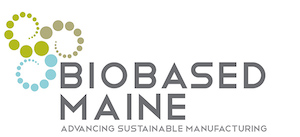Potatoes and green chemistry: More jobs, safer jobs
Special to the BDN
That is why Congress needs to follow Maine’s lead and act to reform the outdated Toxic Substances Control Act (TSCA). The reform mantra should be: First do no harm. Require chemical manufacturers to test chemicals before they are placed on the market. Prove to workers and consumers that chemicals are safe and provide us with minimum standards of information.
Recognize and prioritize the nastiest chemicals and substitute safer alternatives. Require chemical processes that use toxic chemicals to be re-engineered. Develop new green chemicals that are less hazardous to workers.
The resulting shift in research and development will create jobs and opportunities. “Instead of accepting the myth that policy reform will somehow cost more jobs,” said Leo W. Gerard, International President of the United Steelworkers, which represents some 30,000 chemical workers in North America. “TSCA reform will create sustainable, good-paying jobs while protecting the health of workers and the environment by encouraging investment in education, technology and research.”
And now back to Maine’s potatoes. Green chemicals research and development is already making a difference in the form of bioplastics, organic plastics based on plants rather than petroleum. In the last three years, the Sustainable Bioplastics Council of Maine, a trade organization promoting the bioplastics sector, has raised more than $2 million for research and development of sustainable plastics made from Maine potatoes.
The plastics industry is the third largest manufacturing industry in the U.S., so the societal benefit from a shift toward biobased plastics could be enormous — reducing consumption of fossil fuels and avoiding health concerns associated with traditional plastic production, use and disposal.
Demand for bioplastics has soared in recent years. In Maine, 13 million pounds of bioplastics could be made each year solely from waste potatoes left over from the growing of the food crop. Production of bioplastics could create more than 850 permanent jobs in Maine.
If there is no change and the chemical industry is allowed to continue on their present path, preferring cost-cutting practices that eliminate jobs and minimize innovation, the present number of jobs in nonpharmaceutical chemicals will be cut in half over the next 20 years. It is time for stronger regulation and safer chemicals.
These reforms will create jobs, spur innovation and build a safer future. And, if we are lucky enough to have reforms enacted, perhaps we could even find a new way to use our potato crop by turning the root veggie into something completely unexpected.
John Newton is an industrial hygienist and former paperworkers union leader. He represents the American Federation of Government Employees on the executive board of the Maine AFL-CIO. Anthony Zeli is an occupational safety and health advocate with the Maine Labor Group on Health.
